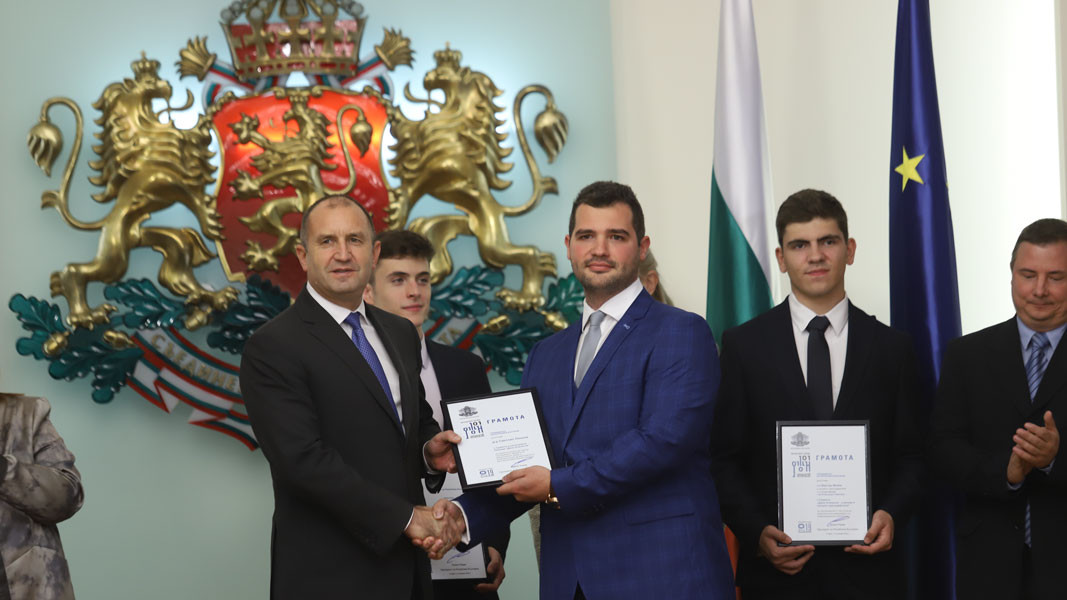For decades, the film industry has been showing our fears of robots that someday might conquer the world. However, we are not very close to the creation of artificial intelligence that has the basic abilities of the complex thought processes of the human brain. Young Bulgarian IT specialist Dr. Svetlin Penkov has directed his work towards the progress of robots in the foreseeable future. He is part of the FiveAI team, the largest startup company for autonomous cars in the UK. For two years, Svetlin has led a team developing models for situational predicting of the behavior of other participants in road traffic. His research work focuses on artificial intelligence tasks that require sophisticated cognitive functions such as planning, causal relationships, and interacting with the environment. He started his work in this field years ago in Bulgaria. For his achievements, Svetlin Penkov was honored with the John Atanasoff 2019 diploma, which is awarded for outstanding achievements in the field of computer-based technologies.

"One of my designs allows a robot to learn how to perform a new task by watching a single human demonstration. When you want to use such an algorithm on a robot, you have many factors to consider, but the biggest one is safety," Dr. Svetlin Penkov says and adds:
“The difficult problems are related to what robots understand, and so I started working on the intersection between artificial intelligence and robotics. For example, if you are developing an autonomous car, then one of the key elements is making your algorithm safe. That's the direction I have been working on. I finished my PhD at the University of Edinburgh. In the UK, the team I led analyzed video information from traffic in London to develop models that predict the reactions of other road users. When it comes to autonomous cars, they are driverless. You sit down, press a button, and say what the end point of your journey is. The car has the task of getting you there, picking the route and taking care of your safety. What I was doing was modeling and predicting the behavior of other participants in road traffic. This is one of the most difficult problems - to predict in advance that someone would merge in your lane or that a pedestrian may decide to cross the street. The methods we developed were actually based on a lot of information we had access to. My team in the UK tested the autonomous cars in London and had no problems or accidents.”
In August 2019, Dr. Svetlin Penkov returned to work in Bulgaria and here he is involved in the same activity. He says that from his experience working in a huge company abroad, on the cutting edge of technology, he has realized that to reach such a level, no big resources are required as human resources are the key factor. I see huge potential in in Bulgaria. “One of the things I want to actively work on here is creating a place where we can develop science at a world level,” Dr. Svetlin Penkov says.
English: Alexander Markov
Photo: BGNES152 years after the death of the Apostle of Freedom, the personality of Vasil Levski continues to excite Bulgarians, regardless of whether they are in the country or abroad. The Embassy of Bulgaria in Athens, Greece , has extended an invitation to the..
Easter 2020 went down in history with two things. The first was the state of emergency, introduced due to the Covid-19 pandemic that imposed a number of restrictions on us, the consequences of which we are still recovering from. The..
At various times in its existence, the BNR's Directorate of Foreign Language Broadcasts, now known as Radio Bulgaria, the multimedia multilingual platform of Bulgarian National Radio, was more than just a workplace for a number of popular journalists...
Easter 2020 went down in history with two things. The first was the state of emergency, introduced due to the Covid-19 pandemic that..
152 years after the death of the Apostle of Freedom, the personality of Vasil Levski continues to excite Bulgarians, regardless of whether they are in the..

+359 2 9336 661
